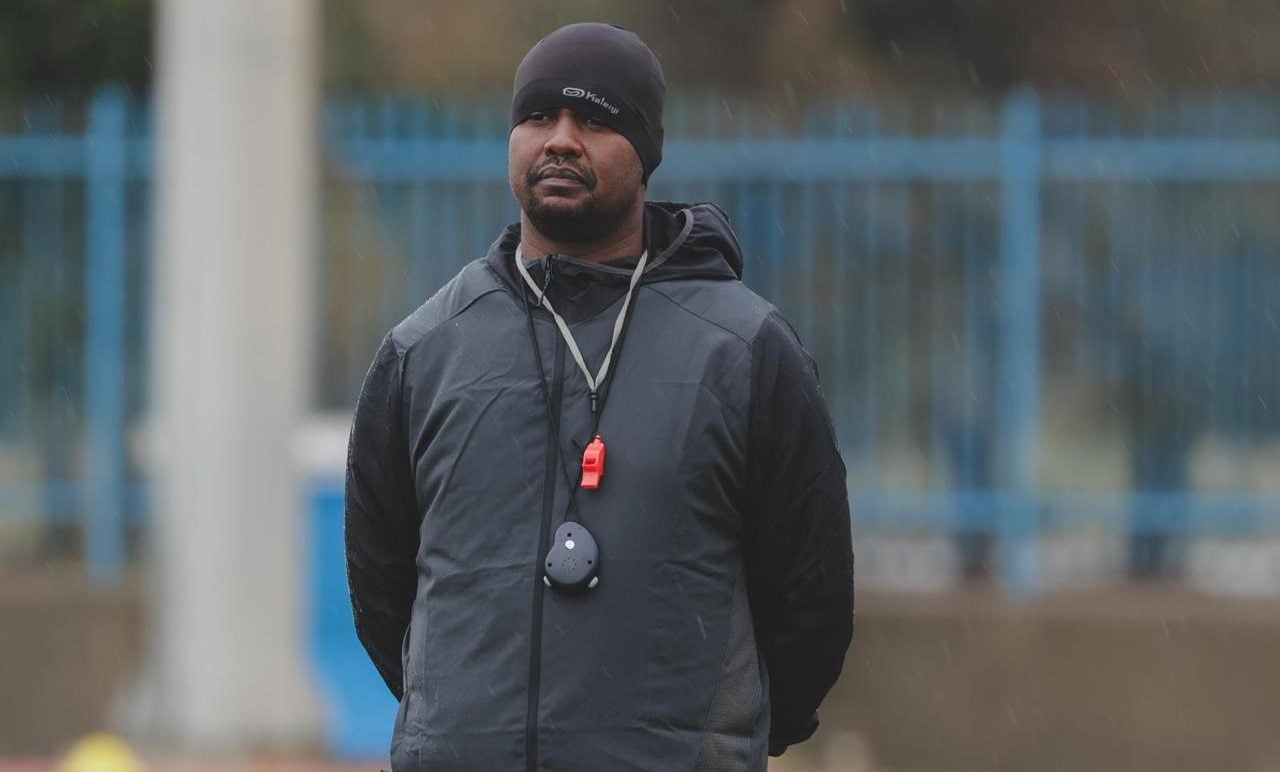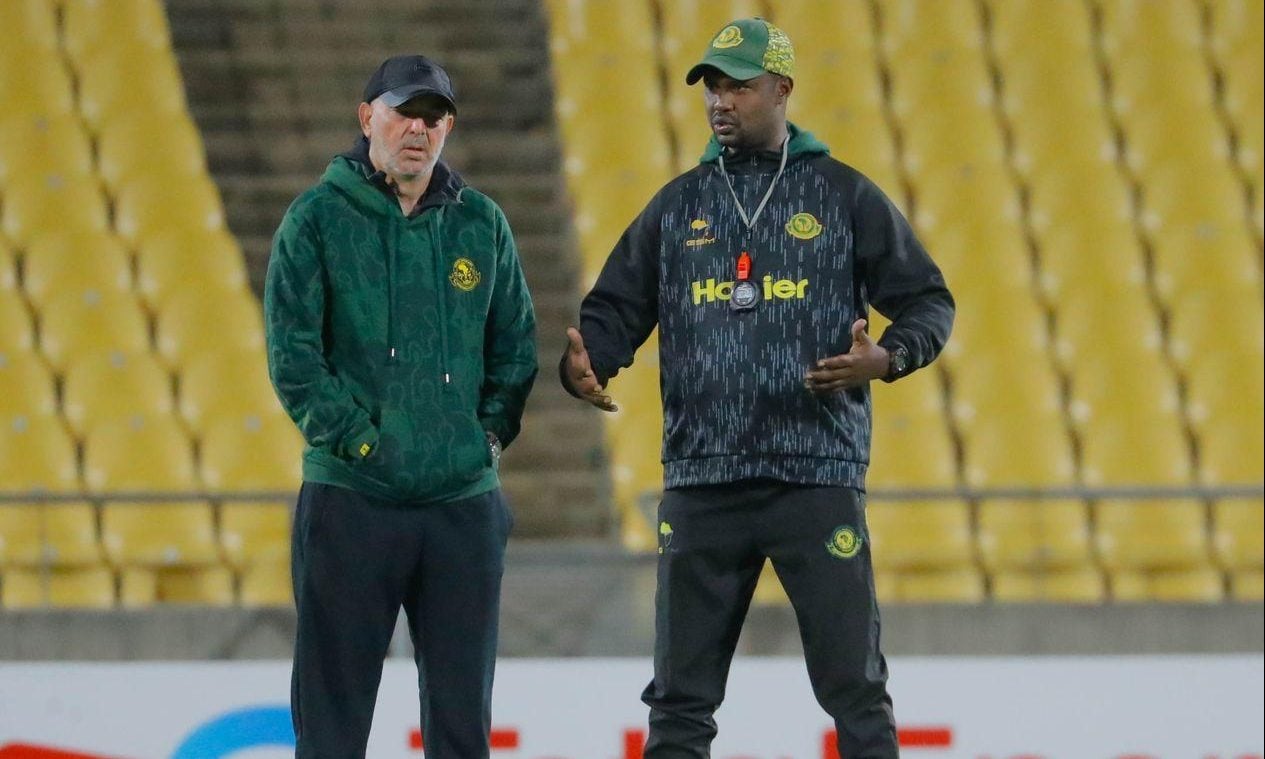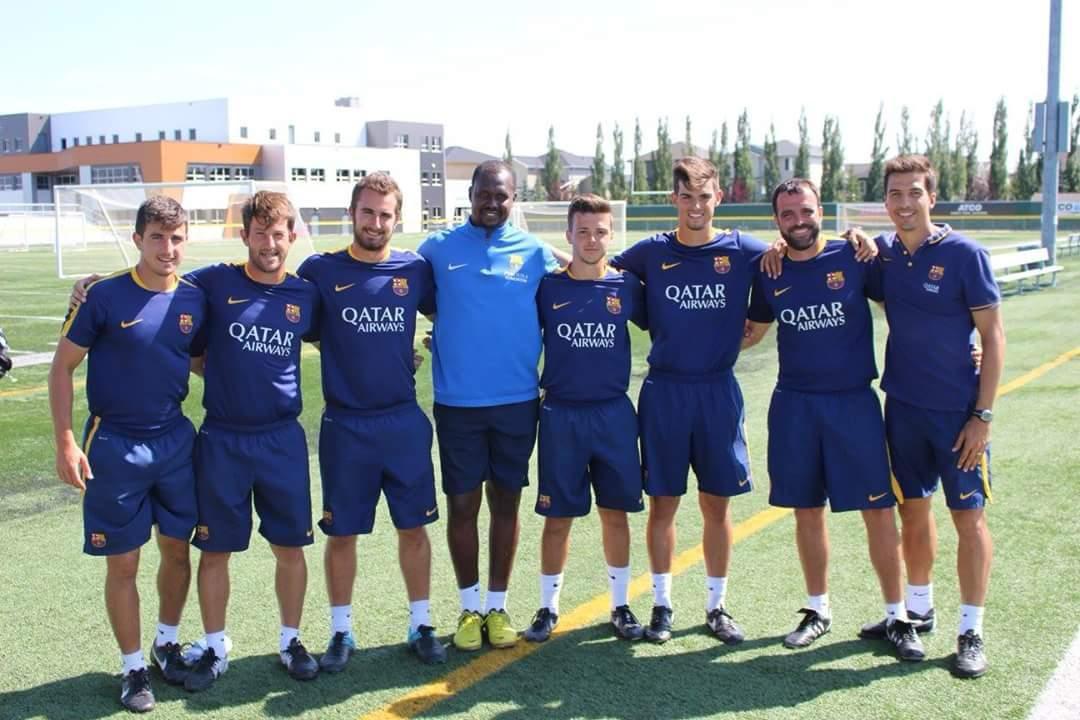If FC Barcelona’s renowned La Masia Academy is a football mecca, then Cedric Kaze is its first African missionary entrusted with spreading the tiki-taka gospel
Rare is the coach, from Africa or anywhere, who can boast of having stepped into the hallowed halls of the academy that has graced the world of football with talents like Lionel Messi, Andres Iniesta, Cesc Fabregas, and Xavi Hernandez.
Nevertheless, this is precisely what the Burundian Kaze accomplished eight years ago when his coaching journey led him to the esteemed Spanish football institution. As a typical African youth, his passion was for street football back home in Bujumbura. His father’s new television set ignited his love for football, particularly after watching the 1990 FIFA World Cup and the legendary Diego Maradona.
In 1998, aged 18, he learned from a friend that the Prince Louis FC youth team was holding trials. He impressed at the trials and earned a spot on the youth team, where he honed his skills for three seasons. After that, his hard work paid off as he made the leap to the senior squad.
THE MAKING OF COACH CEDRIC KAZE
“I loved football, and I watched every single game on television. In Burundi, we watched the French League a lot, and I fell in love with [AS] Monaco, whose coach then was Arsene Wenger. The team had players such as George Weah,” Kaze tells FARPost.
“The club president, aware of the coach’s absence and that I was not training, approached me about assisting in training the team. I began researching ways to diversify training sessions, as I wasn’t well-versed in the technical, tactical, and physical aspects of coaching. I was learning on the fly, picking up tips from the internet.
“It was challenging to suddenly coach players I had been training alongside just two months earlier, some older than me. I had to find effective exercises to earn their respect, and my passion for coaching ignited through that process. We finished that season in second place, qualifying for the CAF Confederation Cup. That’s how my coaching journey began.”
After Prince Louis, he joined Atletico Olympic as an assistant coach for two seasons until 2009, when he earned an internship to study in Germany at Hennef Sports School.
RUBBING SHOULDERS WITH MESUT OZIL AND TONI KROOS
That internship saw him serve as a match analyst for Germany’s Under 21s in the 2009 European Championship. Germany featured then-up-and-coming players such as Mesut Ozil, Toni Kroos, Sami Khedira, Manuel Neuer, and Mats Hummels.
“I was fortunate to spend a couple of weeks working with them. The organisation, the professional structure, and the quality on the field were truly impressive.
“My next opportunity was with Schalke 04, and then Bayer 04 Leverkusen, where I had the pleasure of working with young talents like Arturo Vidal. He was so young but incredibly gifted. It was a joy to watch him play every day.”
Travelling to Germany for the coaching course jump-started his coaching career, which had started accidentally in Bujumbura.
“Back in Burundi, I took over as head coach of Atletico, and I finished second in the league. In 2012, we won the league and finished unbeaten. We also won the Super Cup. We went to play in the CAF Champions League for the first time, and then we played in the CECAFA Championship.”
A holder of A Licences for CAF and the German Football Federation, the 45-year-old was named the best coach for East and Central Africa in 2012.
“I then went to Rwanda and coached a team called Mukura Victory Sports. We finished the league in position four with an unbeaten run of 12 games. The following year, I did half of the year, and that was my saddest moment because I couldn’t fulfil what management, fans, and I had expected.

HOW HE LANDED A ROLE AT BARCELONA
“I resigned after the first half of the league and went back to Burundi, where I coached Atletico. From 2009, I was part of the staff of the national teams; first as an assistant coach for the Under-17 in 2007, and I was an assistant coach to the senior team, head coach for the Under-20 and 23 until I left for Canada in 2015,” the soft-spoken mentor says.
The coach’s journey to Spain began during his Canadian stint. When Soccer is Everything, a youth football training institution in Canada, hired the young coach, they were impressed by his experience. They praised his well-rounded knowledge of the game, highlighting his “years of experience in different aspects of the game make him a great addition to our team!”
“While in Canada, the chance to coach at the Barca academies arose,” he explains. “There was strong interest, so I went through interviews and exams. My experience with youth and national teams likely helped me succeed, leading to two and a half years at their Canadian academy.
“This immersed me in Barca’s philosophy – their training, values, and what it takes to be a coach in their ‘family.’ It was exhilarating, but I felt drawn to senior football after two and a half years. The youth system is valuable, but my passion lies in the high-pressure coaching environment at the top level.”
SENZO MBATHA RECALLS HOW HE CAPTURED KAZE’S SERVICES
Returning to Africa, he took the helm at Young Africans in Tanzania’s Premier League. Maverick administrator Senzo Mbatha revealed that his interest in the Burundian coach began during his tenure at Simba, but he was unable to secure his services at that time. It wasn’t until Mbatha moved to Yanga that he finally succeeded in signing the talented and contemporary coach.
“He’s a Burundian who honed his skills in Canada, working within the Barcelona network,” he tells FARPost.
“His CV was truly impressive, and when you speak to him, you can immediately sense his deep understanding of the game. That, combined with the fact that he’s an African who was making his mark overseas, really drew me to him. I believe someone like that can easily find their footing when they return to Africa.”
The former Orlando Pirates administrator went on to praise the coach’s work ethic and approach.
“He’s a dedicated coach who believes in the science of football, emphasising planning and analysis. He’s more of a technical coach, focused on drilling technique and tactics and actively working with his players to improve their skills. He invests time in his players.”
This Burundian football evangelist offered Tanzania a taste of tiki-taka as Yanga clinched the Mapinduzi Cup, triumphing over rivals Simba SC 4-3 in a penalty shootout. He had replaced Serbian Zlatko Krmpotic, who had survived for a month and seven days at a demanding job in Yanga.
Clinching the trophy just three months into such a challenging role was a dream start for the then-40-year-old coach. He further solidified his success by leading the team to a second-place finish that season.

JOINING FORCES WITH NASREDDINE NABI AT YOUNG AFRICANS
“The feeling [of winning the cup] was great because Yanga had been struggling during those years, and this was the first trophy they had won in about three years. You could see the people’s happiness on the streets, which is priceless,” he says.
“He laid a good foundation when he was head coach of the club,” explains former Yanga striker Yusuph Athuman. “The team went the entire first half of the season unbeaten, but a couple of draws in the second round cost him the league title, which Simba SC won.”
Kaze left the club towards the end of that season. After a brief hiatus, he rejoined the club as an assistant to Nasreddine Nabi. He formed a formidable partnership that swept every available trophy in Tanzania, solidifying Kaze’s reputation as a rising coach in African football.
They lifted two league titles, two FA Cups and the Community Shield twice. Having experienced the most successful period of Nabi’s coaching career firsthand, Kaze deeply understands the Kaizer Chiefs coach’s philosophy.
“It’s entertaining football, and he wants his players to take risks, especially offensively,” he says, not wanting to give too much away. At Yanga, Kaze’s fluency in six languages proved invaluable, particularly in assisting Nabi.
His linguistic skills span French, Kirundi, Kiswahili, English, German, and Spanish.
At almost any club in the world, Kaze, who is currently working for BTB Academy in Edmonton, Canada, would eliminate the need for translators to bridge the communication gap.
Imagine Cedric Kaze, fluent in multiple languages, not only teaching the players the intricacies of tiki-taka but also fostering a seamless flow of communication and understanding within the team.
RELATED STORY: Three key improvements Doctor Khumalo sees in Nabi’s Chiefs


